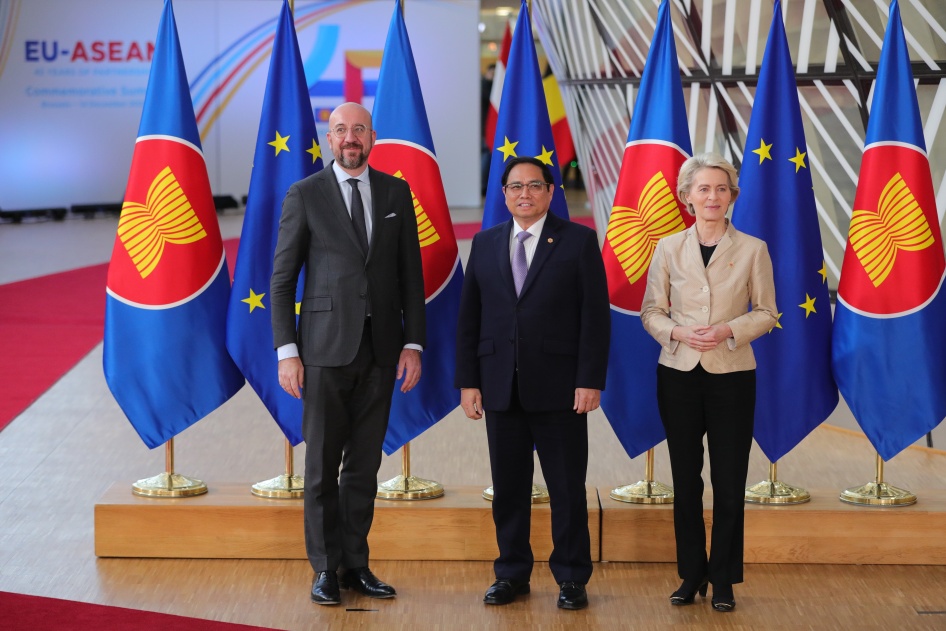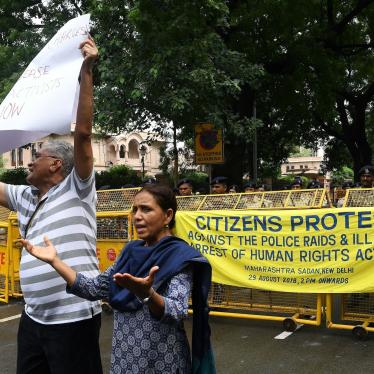(Brussels) – The European Union should reconsider its bilateral human rights dialogue with Vietnam and adopt more effective measures to address the Vietnamese government’s intensifying repression, Human Rights Watch said today, based on its submission to the EU. The next round of the EU-Vietnam Human Rights Dialogue will take place on July 4, 2024, in Brussels.
The EU and Vietnam have engaged in human rights discussions since the 1990s. Over the years, the Vietnamese government has made very little progress on numerous issues raised by EU officials, and in recent years its repression has considerably intensified.
“The EU’s human rights dialogues with Vietnam have had little impact on Hanoi’s repression,” said Claudio Francavilla, associate EU advocacy director at Human Rights Watch. “More of the same won’t lead to different results. The EU needs a more effective approach to address Hanoi’s crackdown on basic freedoms.”
More than 160 people are currently imprisoned in Vietnam for criticizing the government, which is a criminal offense under the penal code. The authorities are increasingly targeting environmental activists, just as the EU and Vietnam have signed over €500 million (US$537 million) in agreements to support Vietnam’s transition to renewable energy. The Vietnamese Communist Party controls all media, and the government is the world’s third largest jailer of journalists. On June 1, the police arrested the prominent journalist Huy Duc and the lawyer Tran Dinh Trien for their pro-democracy posts on Facebook. Both were charged with “abusing the rights to democracy and freedom to infringe upon the interests of the State,” under article 331 of Vietnam’s penal code.
The authorities carry out intrusive surveillance of the internet, and posting or sharing criticism of the government online could lead to a long prison sentence.
Some of these abuses are linked to the EU-Vietnam Free Trade Agreement, which entered into force in August 2020. Notably, the activists Mai Phan Loi and Dang Dinh Bach were arrested as they tried to join the Domestic Advisor Group (DAG), the entity tasked with monitoring implementation of the agreement. Mai Phan Loi was eventually released, in September 2023, but Dang Dinh Bach is still serving a five-year prison sentence. The activist Pham Chi Dung remains behind bars, serving a 15-year sentence for his peaceful advocacy in 2019 urging the EU to leverage Vietnam’s appetite for trade deals to secure human rights progress in the country; a call that Human Rights Watch and many other rights groups supported.
Vietnam has not ratified International Labour Organization (ILO) Convention No. 87 on Freedom of Association and Protection of the Right to Organize, despite a specific pledge to do so by 2023, made ahead of the European Parliament’s February 2020 vote on the trade agreement.
These and other developments, recently acknowledged by all EU member states, members of the European Parliament, and European members of the Domestic Advisory Group, run counter to Vietnam’s pledges, including those undertaken in the EU trade deal. The European Commission stated that the deal “includes an institutional and legal link to the EU-Vietnam Partnership and Cooperation Agreement, allowing appropriate action in the case of serious breaches of human rights,” but no action has been taken. Some nongovernmental organizations have urged the suspension of the deal over labor abuse complaints.
The EU should not repeat fruitless human right dialogues that merely cultivate the illusion of addressing Vietnam’s human rights crackdown, Human Rights Watch said. The EU should consider more effective tools to press Vietnamese authorities to halt their abuses. In particular, the EU should review Vietnam’s compliance with its human rights commitments under the bilateral political and trade deals, and lay out the consequences for persistent failure to comply. Furthermore, the EU should consider adopting targeted sanctions against those responsible for systemic human rights abuses in the country, including Vietnam’s leadership, and take the lead in international forums to secure independent monitoring and reporting on Vietnam’s human rights record.
“Only targeted sanctions and concrete consequences for political and trade relations will flag to Hanoi that the EU is serious about human rights,” Francavilla said. “Unless the human rights dialogue is used to lay out those consequences, and benchmarks to avoid them, it will remain just another box-ticking exercise.”








